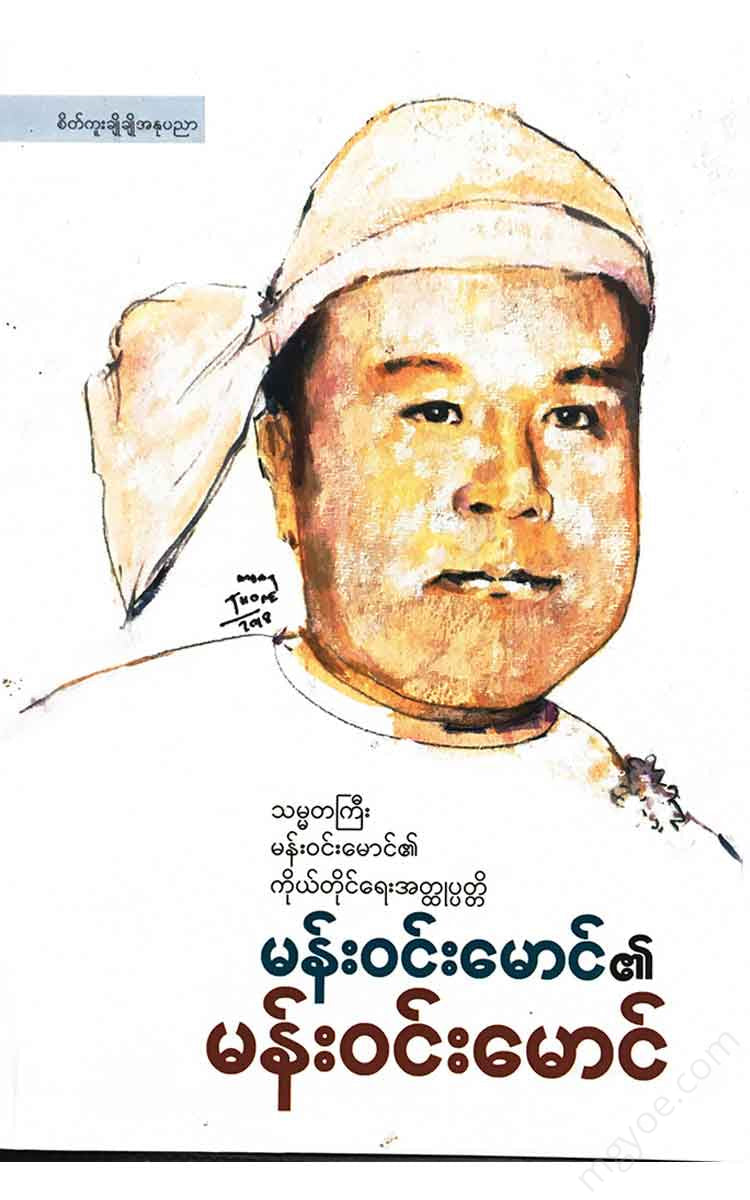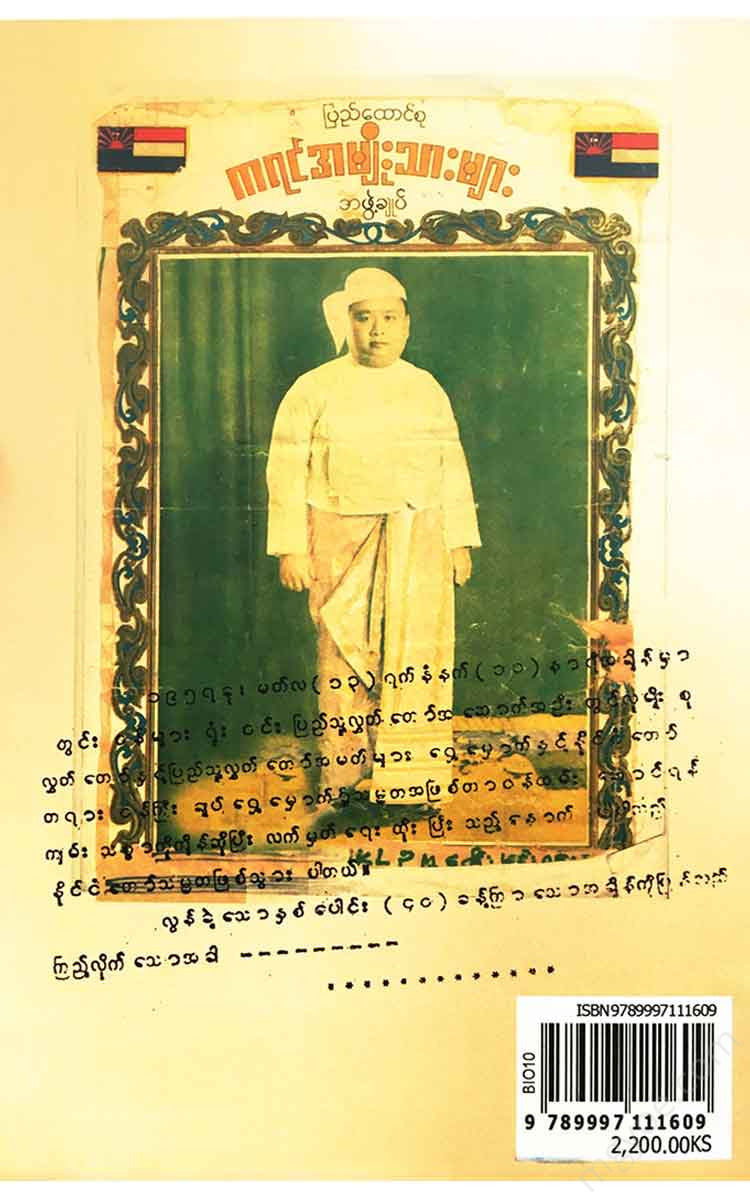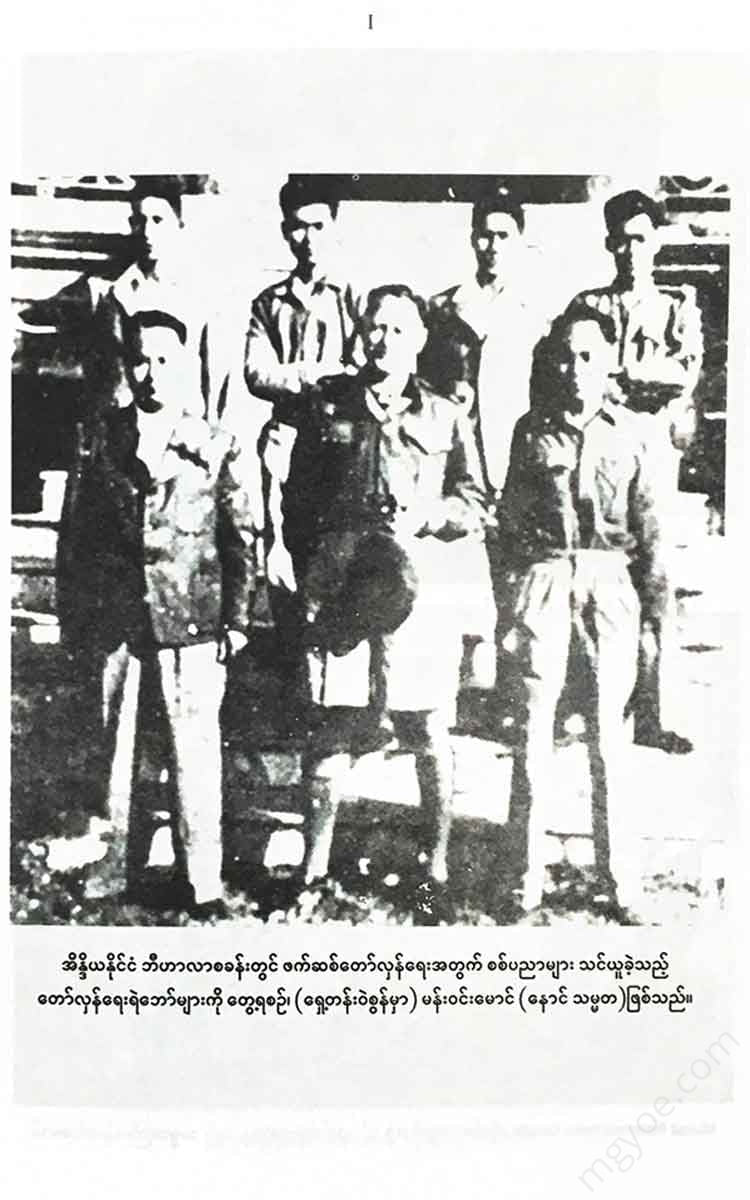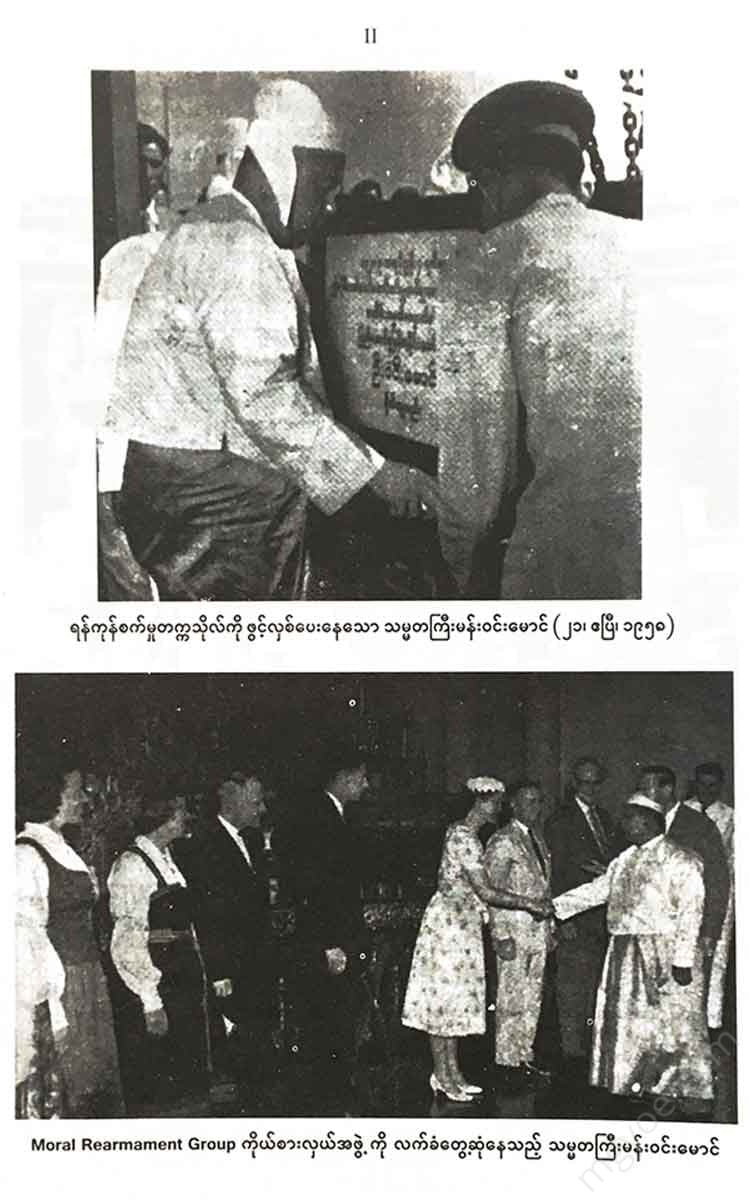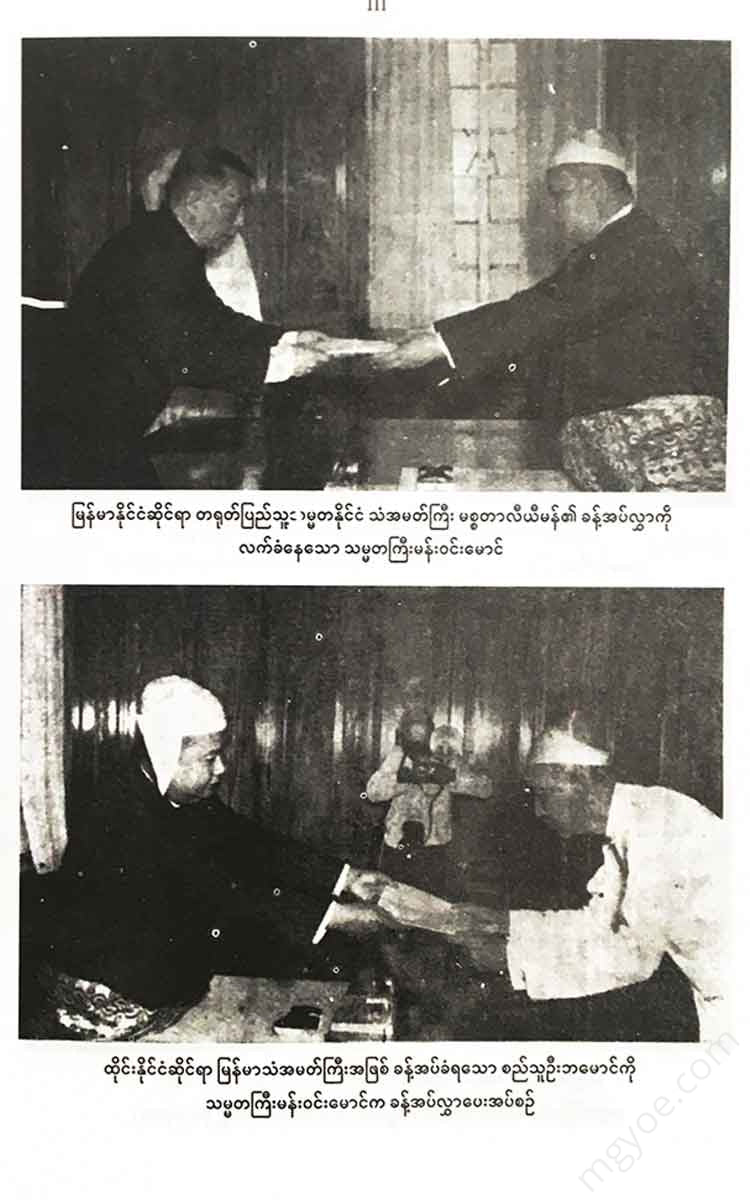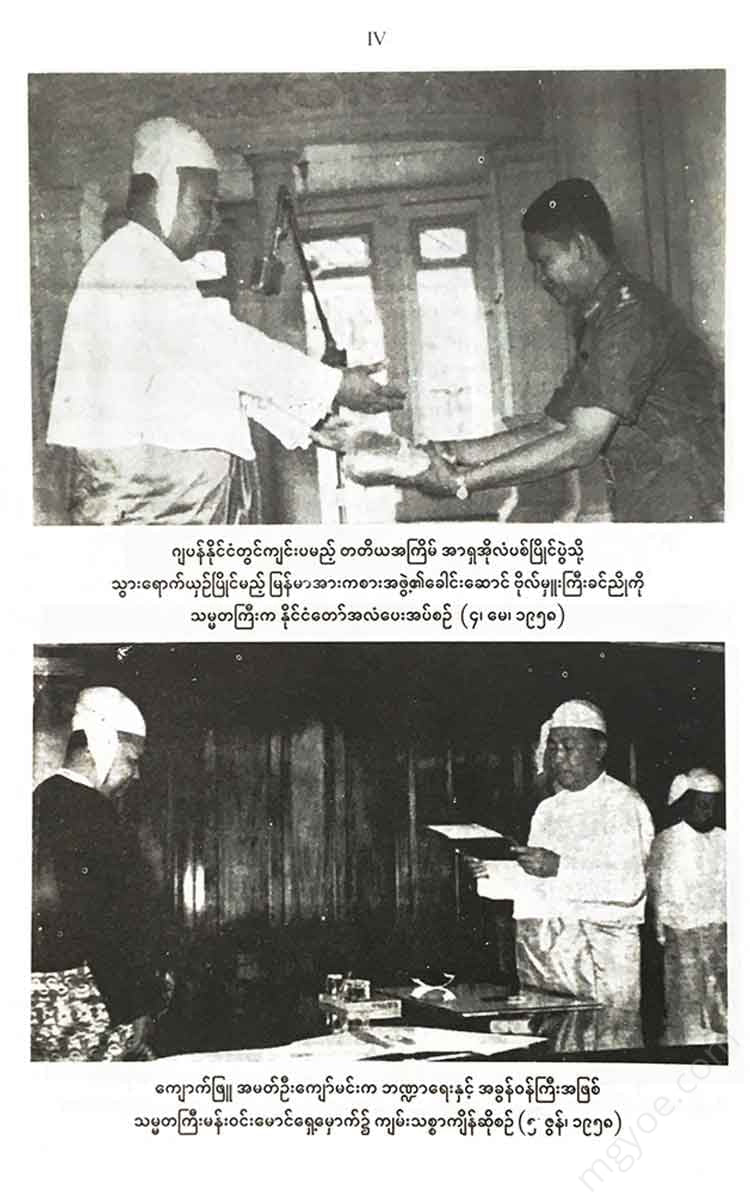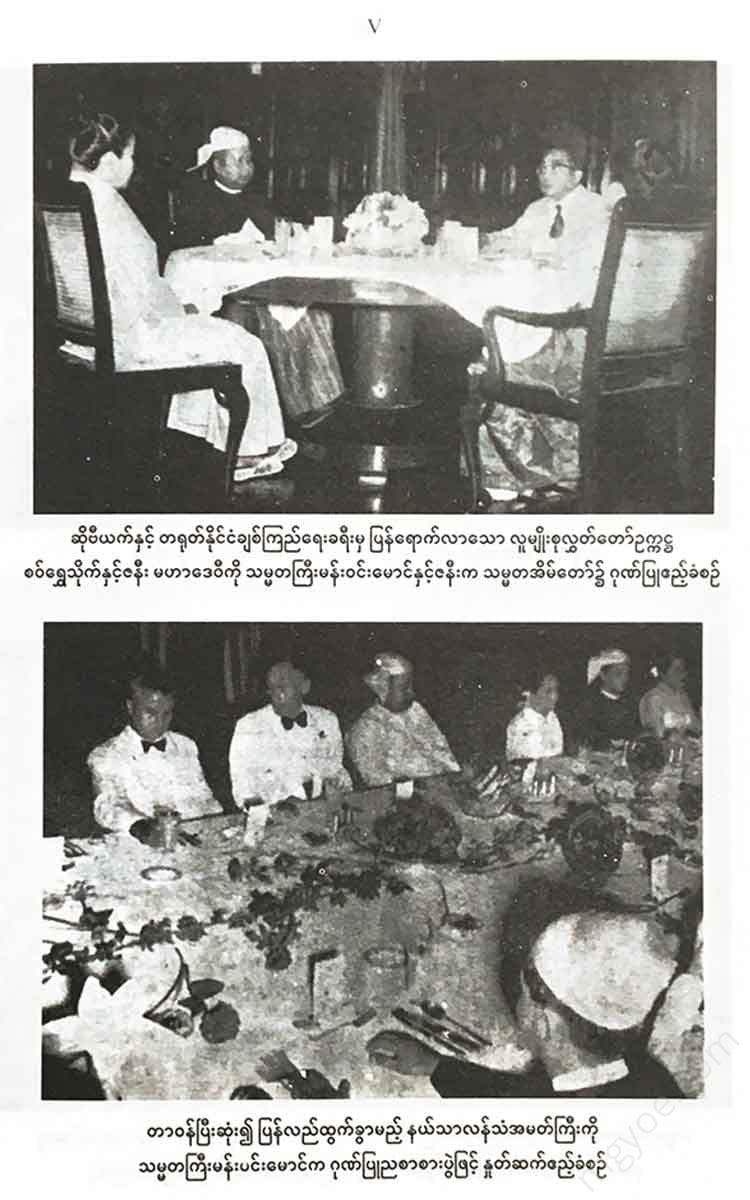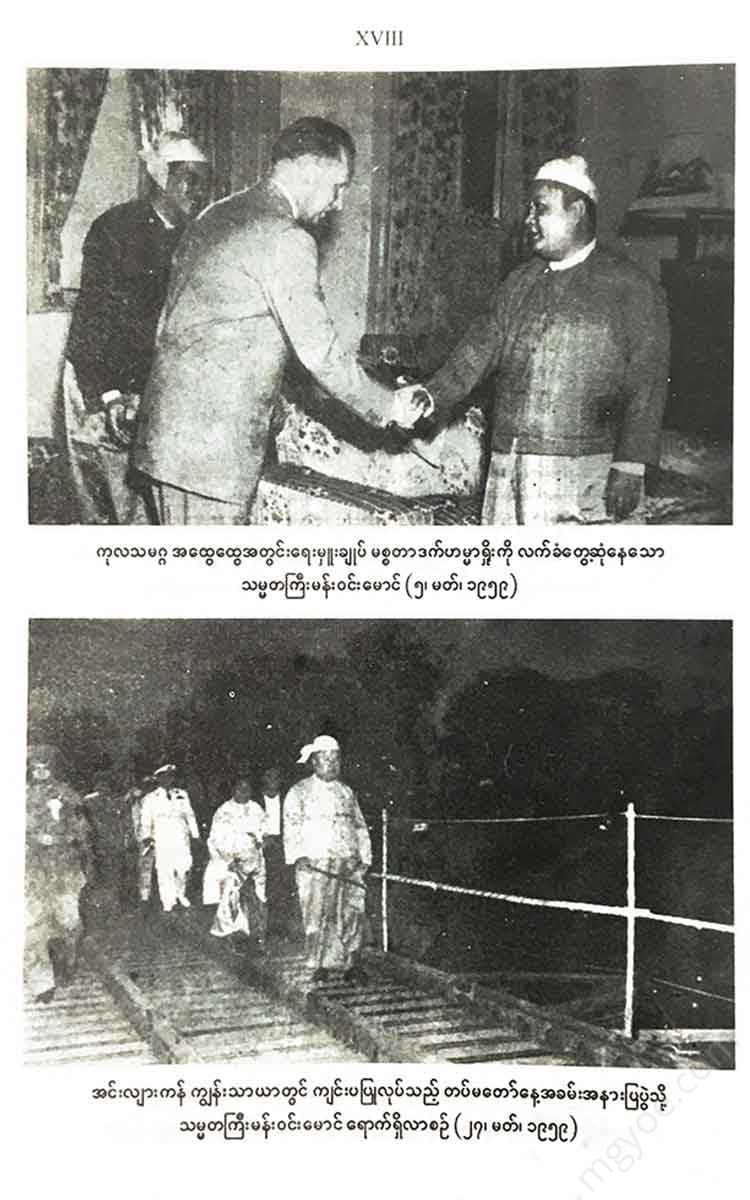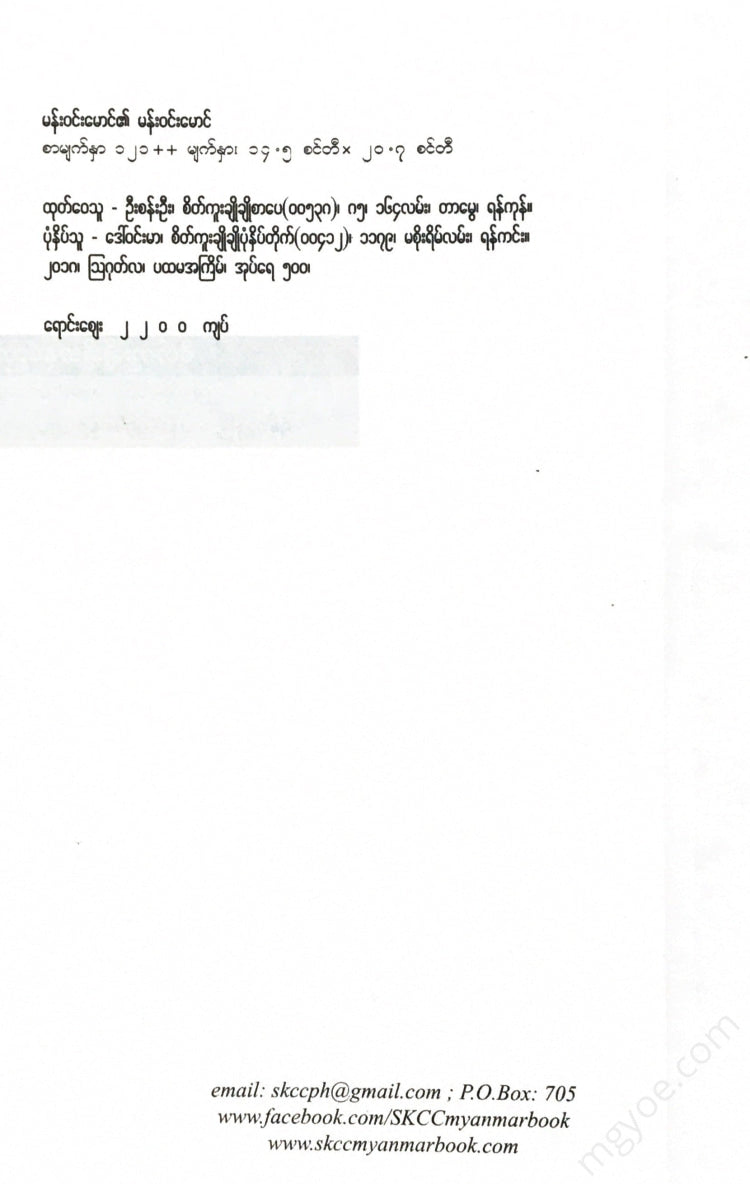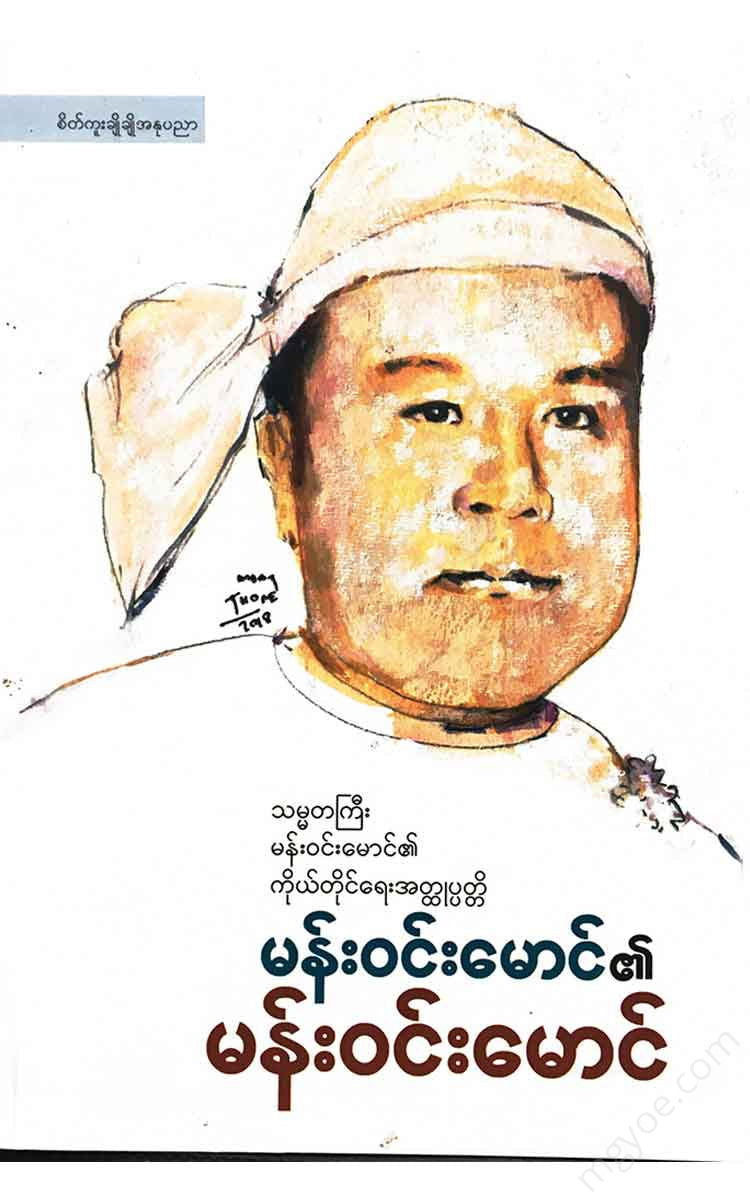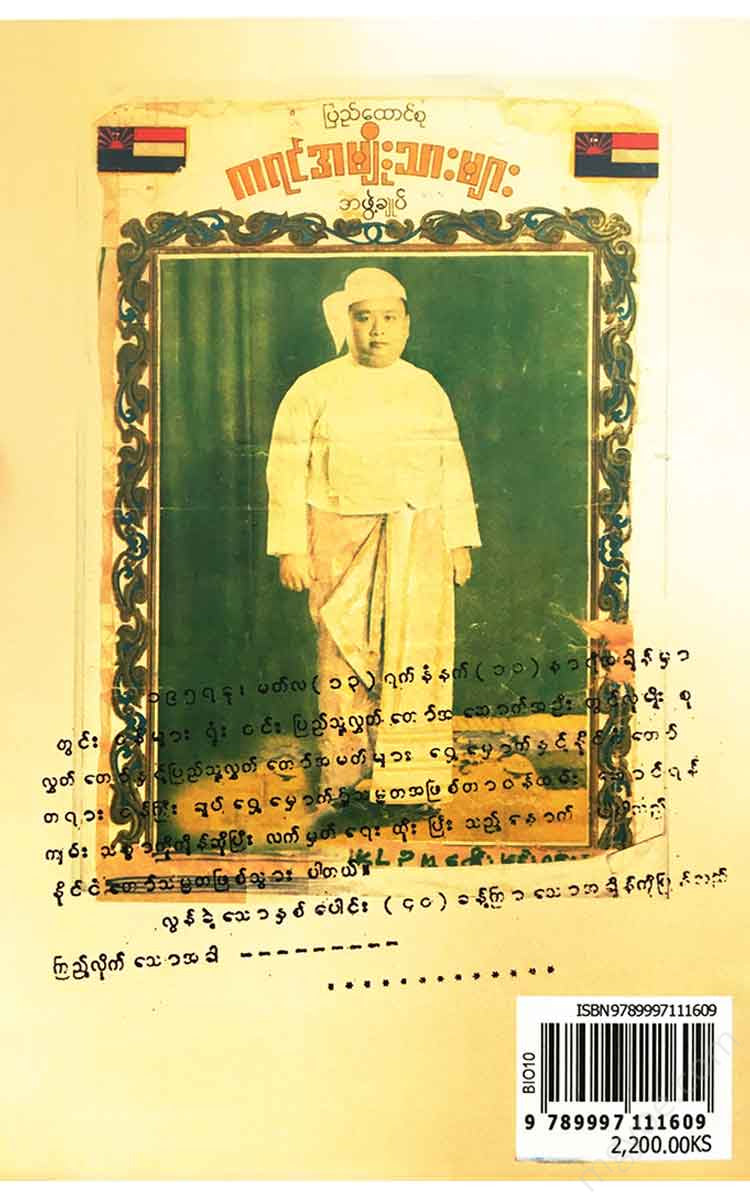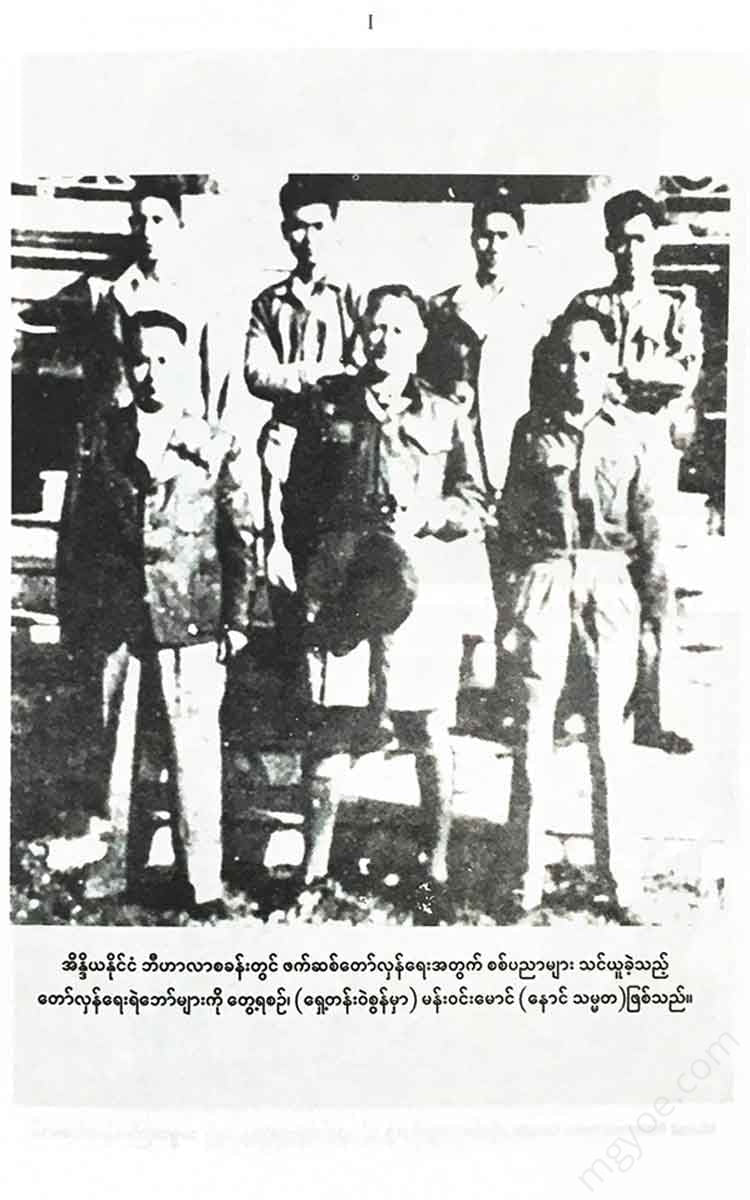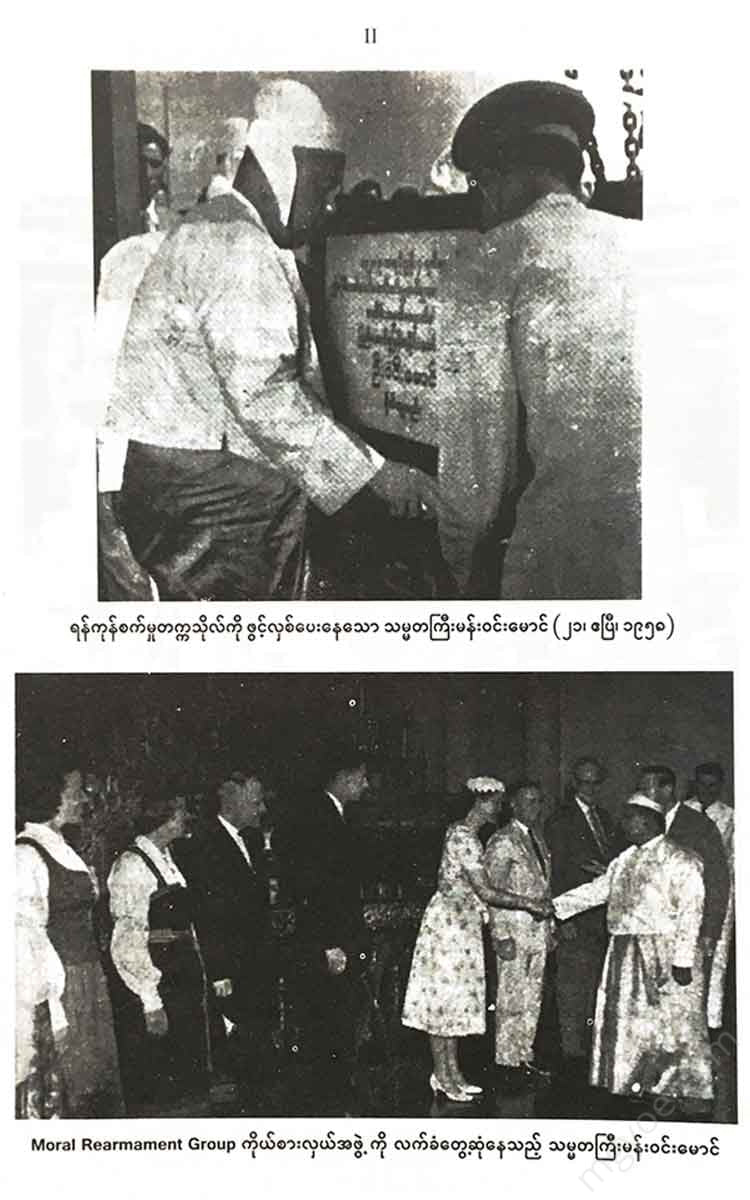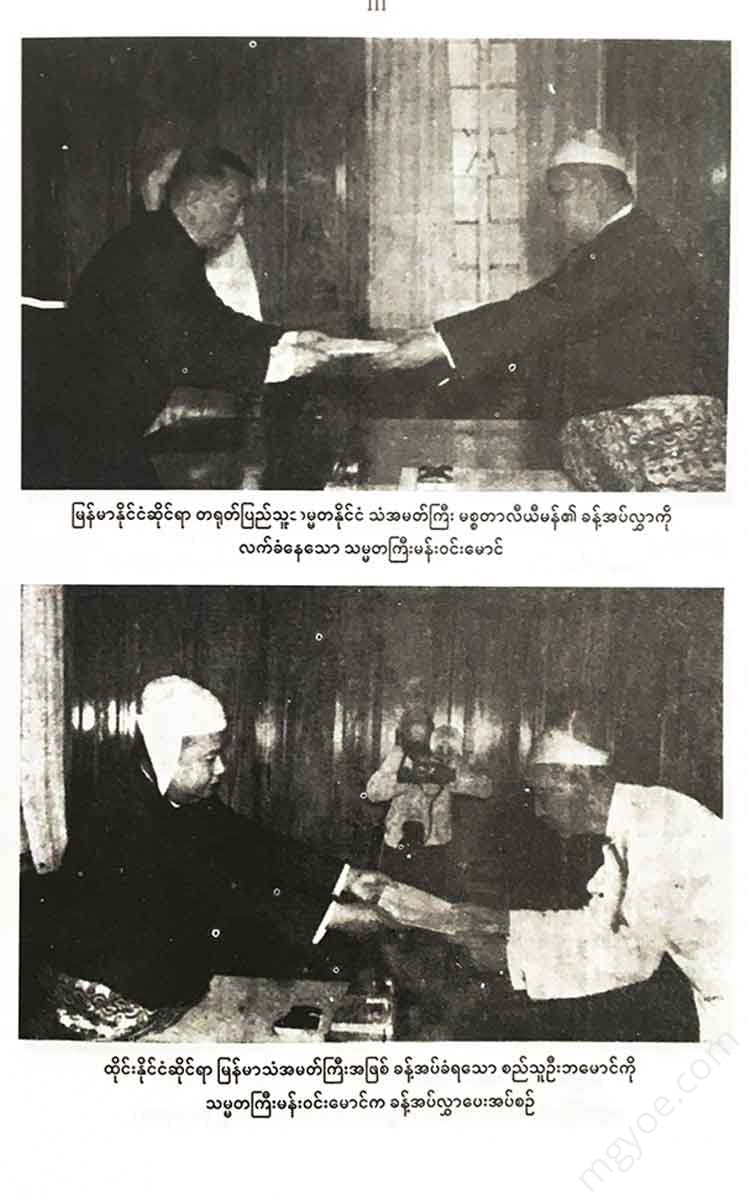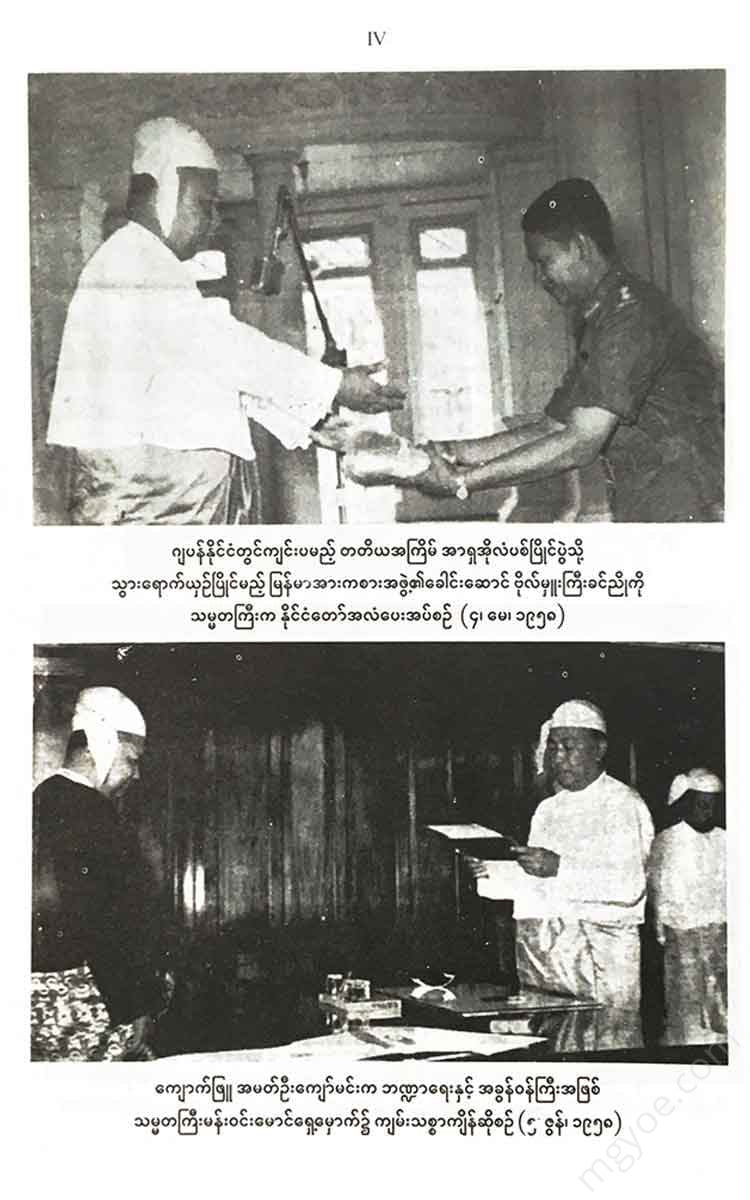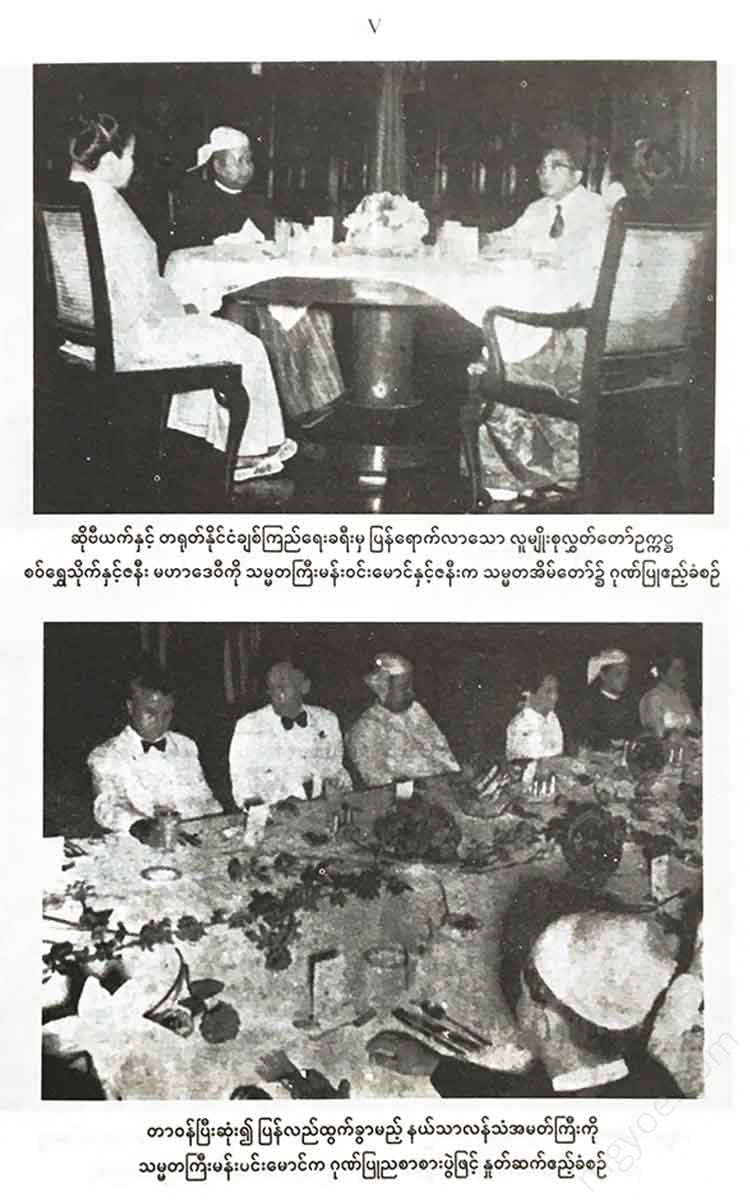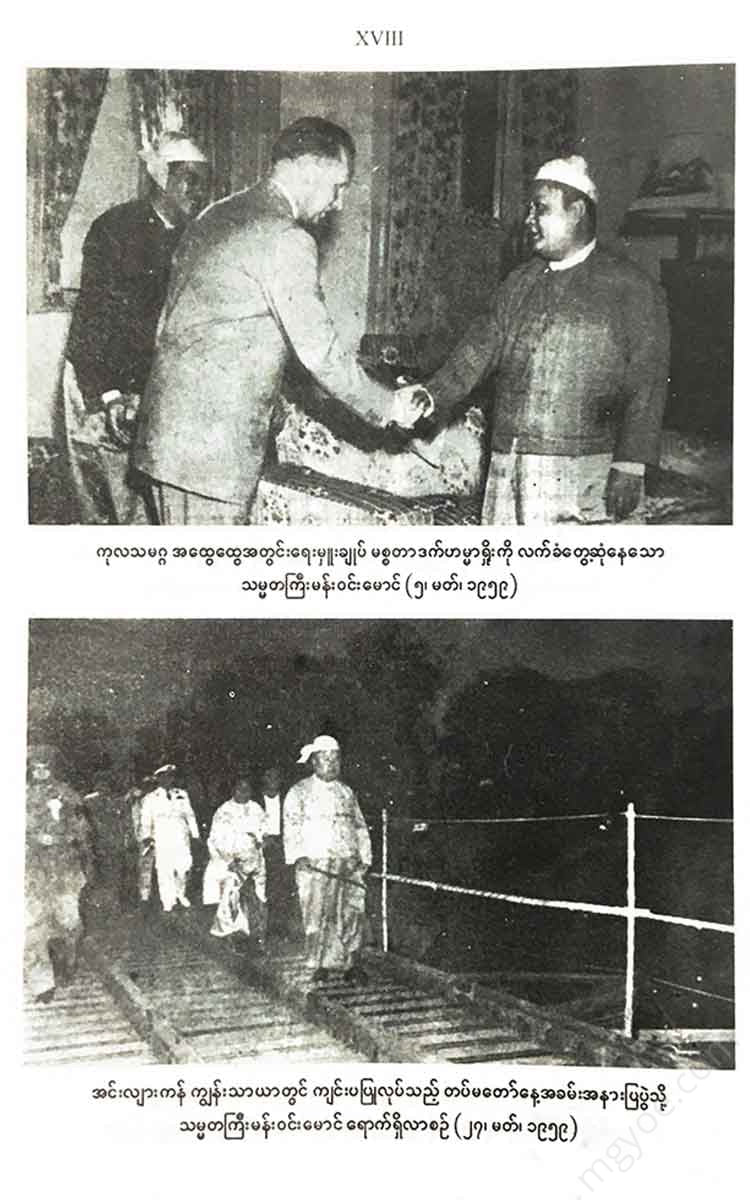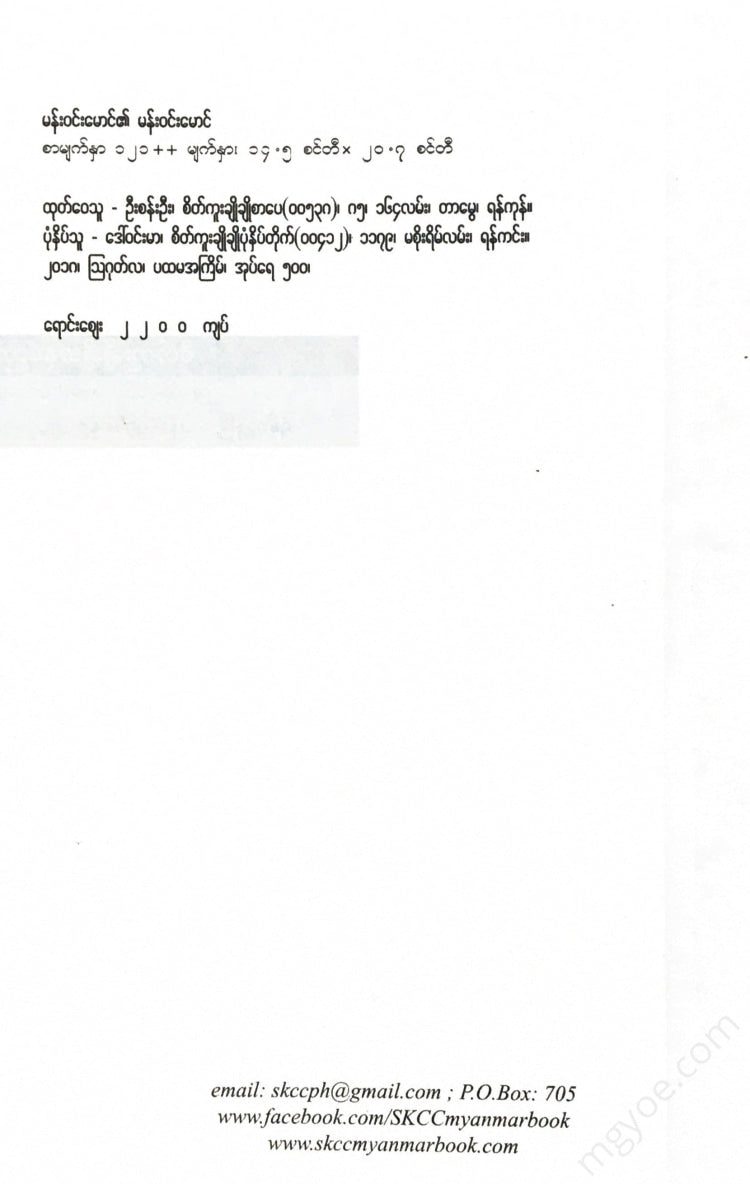စိတ်ကူးချိုချိုစာပေ
Mann Win Maung - Mann Win Maung's Mann Win Maung
Mann Win Maung - Mann Win Maung's Mann Win Maung
Couldn't load pickup availability
On March 13, 1957, at 10:00 a.m., in the Secretariat Building of the Pyithu Hluttaw, in the presence of the members of the National Assembly and the Pyithu Hluttaw, and the Prime Minister, he took the oath of office and signed the document to serve as President, becoming the President.
Looking back over the past 40 years...
Papa was born on April 17, 1916, the full moon of the Tangu month, at 6 a.m. on Monday, to his father, U Shwe Yin, and his mother, Daw Tharyar, in Hlu Seik village. Hlu Seik village is located in Kyun Pyu Township, Pathein District, Ayeyarwady Region, on the right bank of the Da Ka River, which flows into the Pathein River. It is about five miles from Kyun Pyu Town. Hlu Seik village is a long row of villages along the riverbank and is divided into Burmese and Karen parts. On the other side of the village is a rice mill. It was built by Dr. Kimo, a Japanese doctor from Pathein. In addition to rice milling, he also does sugarcane processing. Dr. Kimo left the rice mill with his agent, and he himself lived there from spring to the end of the rainy season. During his stay, he also worked as a doctor.
I don't think it's wrong to say that the port village produces a lot of educated people. The reason is that even during the British era, it produced people who passed the 10th grade, passed the BA, trained to become teachers, teachers, graduated doctors, nurses, clerks, etc. It also produced the president, Pappat.
Papa's father and mother are farmers. Hla Seik village is Papa's hometown. Papa's brothers and sisters live in Hla Seik village and work on the farm. Papa's father passed the primary school entrance exam and became a teacher in Danaw-Sin Kaung Gyi village, not far from Hla Seik village, and Papa's mother was a teacher. When Papa came to the human world, Papa's father was still a school teacher. Papa has four siblings. Two boys and two girls. The eldest is a girl and the second is Papa. Two years after Papa was born, the position of principal was vacant in Kyongpyu township. Papa's father had a teaching certificate and had basic education, so he applied for the position. The job of principal involved inspecting schools in Kyongpyu township.
When Papa was young, he lived in the same village as the school. As the headmaster, he was given a lot of attention as usual. If he was given a lot of attention, he would not be able to tell whether he was good or bad. When Papa was young, he had to use only a blackboard and a blackboard from the first grade to the second grade. The blackboard would break about once a day, so Papa's father would put the blackboard in a box. If Papa kept breaking the blackboard, his mother would beat Papa every now and then. Papa's father didn't say anything. Papa was born and he was a headmaster, so Papa thought it would be good for him, so he let Papa do what he wanted.
Papa's father would sometimes take Papa with him when he went to inspect schools. Sometimes he had to walk from village to village, sometimes he had to go by bullock cart. When he had to walk, one of the people who went with Papa would carry Papa on his shoulder. When Papa was young, there was a bag called a firecracker, which contained gunpowder and small stones. When you threw the firecracker, it exploded and made a loud noise. The small stones would fly away. Then there was a firecracker, which was about the size of a finger, and the smaller one was about an inch long, with a small match on the top. When you lit the match, the firecracker exploded and made a loud noise. These firecrackers, firecrackers, came from China. When Papa was young, he was fond of making firecrackers and throwing firecrackers, so when he went to school after his father, the teachers gave Papa these things. Papa had to make firecrackers, If I had to throw firecrackers, I wouldn't even know if I was going to eat. When I was at home, when it was time for dinner, my mother would keep the firecrackers for me and give them back after dinner.
Papa’s father was the head of the school, so he had his office in Kyongpyo and lived in Hlaingsik village. In the morning, he went to the office with Thamon and in the evening, he returned with Thamon. On days when Papa did not have school, Papa would follow Papa. One day, Papa followed Papa to Kyongpyo, and they were preparing to welcome him to Pathein. The British government divided Burma into divisions, and each division was further divided into districts and townships. The head of a division was called the chief, and the head of a district was called the chief (the name of the chief was changed to the district governor after the Japanese gained independence). The head of two to three townships was called the chief, and the head of a township was called the chief or town mayor. The head of the chief position was usually English-speaking. On the day the English white-faced chief arrived in Kyungpyu, Papa was in Kyungpyu. The chief came from Pathein to Kyungpyu by government boat along the Pathein River and the Da Ka River. The boat the chief was riding on was a houseboat built without a motor, and the houseboat was towed by a motorized boat. It is called a houseboat in English. The dock on the shore of Kyungpyu was decorated with rajamatka, white lime, coconut palms, banana trees, etc. Papa and a group of friends watched from a distance. After the chief’s boat docked, the chief boarded the boat. (Kyungpyu is the headquarters of the chief who administers three townships, Kyungpyu Township, Kyaunggon Township, and Atsut Township.) After a while, the English chief came down with the chief, and greeted the officers who were waiting for him one by one. Papa’s father was an officer, so he stayed near the end. Seeing the official welcomed and treated with respect, Pa Pa felt a desire to do the official job. When Pa Pa returned to Kyungpyu, Pa Pa told not only his friends but also his uncles and aunts about everything he had seen. Not only that, but he also told Pa Pa that when he grew up, he would also become the official. From then on, whenever the people in the village asked him, “What will you do when you grow up?” Pa Pa replied, “I will become the official.” So many people in the village called Pa Pa the official. (In 1947, after the fall of General Aung San, when Pa Pa became the minister, he returned to Sha. When he arrived in the village, some elders told Pa Pa that he had told him that when he was young, he would become the official when he grew up, and he would become the minister.)
The Hlu Saik Village School is a Burmese language school. The British-era education system used three types of schools: English-only schools, English-Burmese bilingual schools, and Burmese-only schools. The English-Burmese bilingual schools have the largest number of students.
Pa Pa's father had planned to send him to the third grade at the village school, and then to continue his education at the Pathein school after he finished the third grade. Since he had to study English at the city school, he had to teach Pa Pa English during the summer holidays so that he could keep up with it. The teacher who taught Pa Pa English was from Shara. He also finished the tenth grade and worked as a teacher at the English-Burmese School in Pathein. He returned to his parents while the school was closed.
After finishing the third grade at the village school, Papa transferred to Pathein School. The school Papa attended was a Mon Karen High School. At that time, Papa’s older sister had been attending Mon Karen High School for two or three years, and Mon Karen High School was a mixed school for boys and girls. There was a male and female dormitory for students who came from far away. Papa was still young, so he was allowed to stay in the female dormitory with his older sister as a special case. At that time, Papa would dress like everyone else. When Papa went to school, he was asked by the older students whether he was a man or a woman because he wore the same clothes. The food served at the boarding school was not as good as at home. He would serve it twice a day, once in the morning before school and once in the evening after school. In the morning, he would eat rice, fish sauce, and rice noodles, and in the evening, he would eat rice and lentils. That was it. Because Papa was afraid of food shortages, Papa's father would order food outside for Papa and pay him a monthly fee. When he met someone, he would send him fried fish, fried fish paste, etc. from home.
Papa was in the third grade when he first entered Mon Karen High School. He had been taught English in the village, so he was in the third grade, but English was not a problem for Papa. At that time, English was taught in the upper grades.
When I first arrived at Pathein School, I thought of my father and mother. I thought of Sha too. When I heard the train siren from Pathein to Hinthada at five in the morning, I would cry. When I first started school in Pathein, my father personally took me. We took a bus from Hlu Seik Village to Kyong Pyaw. From Kyong Pyaw, we took a Ford to Ye Kyi. Back then, American Fords were the most popular and widely used cars. The people in the village called Fords “Phut Car”. Ye Kyi was a station town between Pathein and Hinthada. We took a train from Ye Kyi to Pathein. Even when the school was closed, the same route was followed. Whenever the school opened, my father personally took me to school, and when the school closed, my mother came to pick me up. Although my father could not come to Pathein, he always picked me up at Ye Kyi Station.
After one year at Pathein Mon Karen High School, when the school opened the next year, Pa Pa was no longer allowed to live in the girls' dormitory. Pa Pa's older sister also transferred to another school. So Pa Pa stayed in the boys' dormitory. She also stopped wearing a hijab.
Before school started, Papa's father took Papa to Kyungpyu and had him sew a shirt and shorts. Then he had a pair of high-heeled shoes called boots made at a shoe shop. He would wear them when he went to school. Papa's father sewed Papa a shirt, shorts, and boots, but he gave Papa his Burmese name. At that time, the educated class usually gave their children English names.
Papa was exposed to accidents and injuries from a young age.
